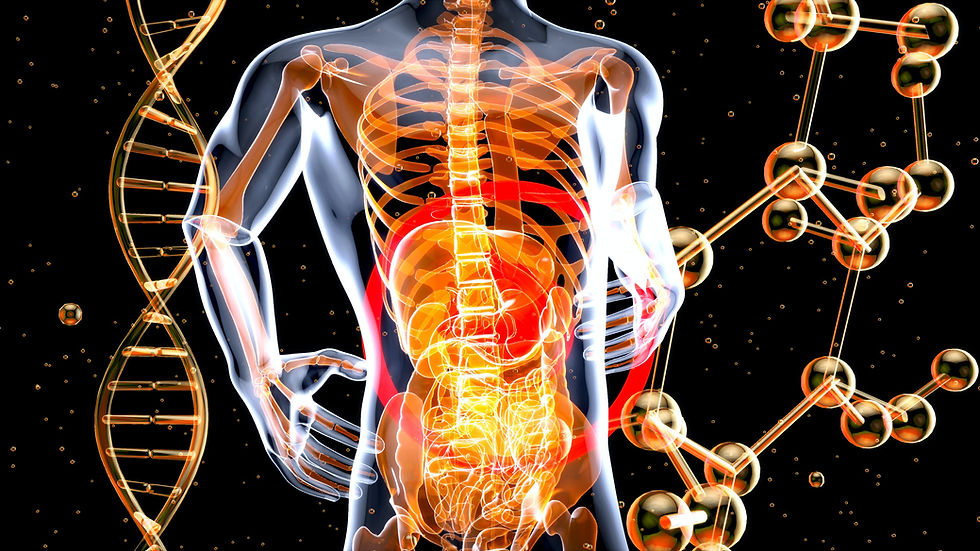How's Your "Gut" Feeling?
- alchemy yoga

- Jun 12, 2022
- 3 min read

The human digestive system is the means by which tissues and organs receive nutrients to function. The system breaks down food, extracts nutrients from it, and converts them into energy.
The digestive tract begins this involuntary process once food is consumed. Saliva begins the breakdown of food, and other enzymes in the digestive tract extend this process. As digestion continues, the food is propelled from organ to organ through muscular contractions called peristalsis.
The most common problems associated with the digestive tract are diarrhea, constipation, irritable bowel syndrome (IBS), inflammatory bowel disease (IBD), and heartburn. These can be caused by many things, such as an unhealthy lifestyle, poor nutrition, a food sensitivity or even an infection.
Many fruits are also rich in fiber. They also contain vitamins and minerals that are good for digestion, such as vitamin C and potassium. For example, apples, oranges, and bananas are nutritious fruits that could help with digestion.
Gut health is important for many aspects of our well-being, from preventing chronic diseases, to improving mood and longevity. The lining of your gut, like every surface of your body, is covered in microscopic creatures, mostly bacteria. These organisms create a micro-ecosystem called the microbiome. And though we don't really notice it's there, it plays an oversized role in your health and can even affect your mood and behavior. You are what you eat. Or more accurately, you are what you feed the trillions of little critters that live in your gut.
There are two ways to maintain this balance — helping the microbes already there to grow by giving them the foods they like (prebiotic) and adding living microbes directly to your system (probiotic). Prebiotics are specialized plant fibers. They act like fertilizers that stimulate the growth of healthy bacteria in the gut.
Prebiotics are found in many fruits and vegetables, especially those that contain complex carbohydrates, such as fiber and resistant starch. These carbs aren't digestible by your body, so they pass through the digestive system to become food for the bacteria and other microbes.
The FDA recommends adults get 28 grams of dietary fiber a day. There are several ways to get more fiber in your diet, including eating more fiber-rich foods. Generally, foods with high fiber content are whole grain breads and cereals, vegetables, fruits, nuts and legumes.
When you feel full, you tend to stop eating and consume fewer calories as a result. To get an idea how this might influence body weight, consider this: Reducing daily food intake by just 500 calories per day could result in positive outcomes to your weight management routine.
That is, pound for pound, high-fiber foods are lower in calories than their counterparts in the high-fat aisle. So that fiber-packed apple you enjoyed as a snack? It may have been filling, but it certainly wasn't fattening.
The slower you eat, the more time your stomach has to recognize when it's full, and the more likely you'll get that "stop" signal from your brain. Bottom line: The more you chew, the less you're apt to eat.
Probiotics digestive health, with vitamin A enhances immunity. Proprietary blend whole health booster with probiotic, soothing herb and antioxidants. With the natural sources that balance of soluble and insoluble fiber will have an effective result of weight management, heart and digestive health, that reduce cholesterol and toxicity of the body.
Drinking water boosts your overall health, and combining that with a good dose of fiber can help you maintain a healthy digestive system. Drinking water and ingesting fiber should go hand in hand. Fiber from the food you eat absorbs water, which makes stools bulkier so they move faster and are easier to eliminate.







Commentaires